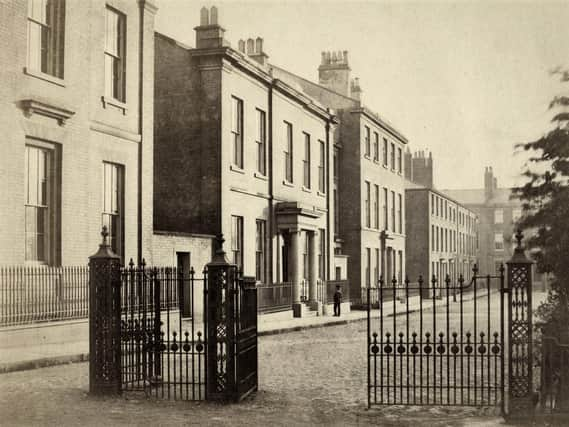Man who ‘borrowed’ cash from his employer acquitted of theft


In 1875 there was operating from 18, Winckley Square in Preston a money lending business owned by Wolf Levy who resided in Liverpool where he had his head office in Stafford Street.
The Preston branch being operated by his brother Aaron Levy who had overall responsibility having appointed William Williams, aged 25, as a clerk early in the year. Williams had gladly accepted the appointment which included accommodation on the premises.
Advertisement
Hide AdAdvertisement
Hide AdThe business appeared to be flourishing in the town, but in mid-December 1875 Williams appeared at the Preston police court accused of extensive embezzlement being charged with stealing £70, the equivalent of over £8,000 in today’s money.
Wolf Levy told the magistrates that it was Williams duty to receive money and enter it into the books and keep it secure in the safe. He claimed that he had checked the books a week earlier and found a deficiency of £70. Making Williams aware it he claimed that Williams had admitted taking the cash. Williams have explained that he had lent his brother, a seaman, £35 in order to trade with it and that the rest of the money had been used to pay a doctor’s bill.
According to Levy the accused had told him he had done wrong in taking the cash and subsequently he took him to Liverpool to consult a friend before giving him into custody at Liverpool.
Levy stated that when Williams was charged he remarked that as a loyal employee he expected Mr. Levy to have understand his predicament, otherwise he would have got the money from his sister. Despite a plea from Williams for Mr. Levy to withdraw the charge he had refused and Williams was handed over to the Preston police.
Advertisement
Hide AdAdvertisement
Hide AdMr. Blackhurst, for the defence, said the prisoner denied stealing the money, but thought his employer would be more understanding and see it merely as a loan. He had admitted that he had not received the consent of Arron Levy, but had said the public are not aware of all the mysteries of the money lending trade.
Having entered a not guilty plea the accused was committed to take his trial at the Epiphany Quarter Sessions in early January 1876. Mr. Blackhurst then asked for his client to be released on bail, but the magistrates refused although Mr. Levy had raised no objection.
At the Quarter Sessions, before chairman Mr. W. H. Higgins and other magistrates, the witnesses were once more examined. Williams, who was defended by Mr. John Addison QC, was described as a young man of a very respectable appearance. He suggested that the money lending business had a somewhat unsavoury reputation and the that the doings and dealings often strayed from the acceptable procedures.
In his view his client whilst acting in a dubious manner had not intended to feloniously steal the cash.
Advertisement
Hide AdAdvertisement
Hide AdThe jury after a lengthy consultation returned with a verdict of not guilty that was followed by an outburst of applause from the public gallery. The chairman responded by saying that such a display of feeling in the court was unacceptable and he then informed Williams that he was discharged.